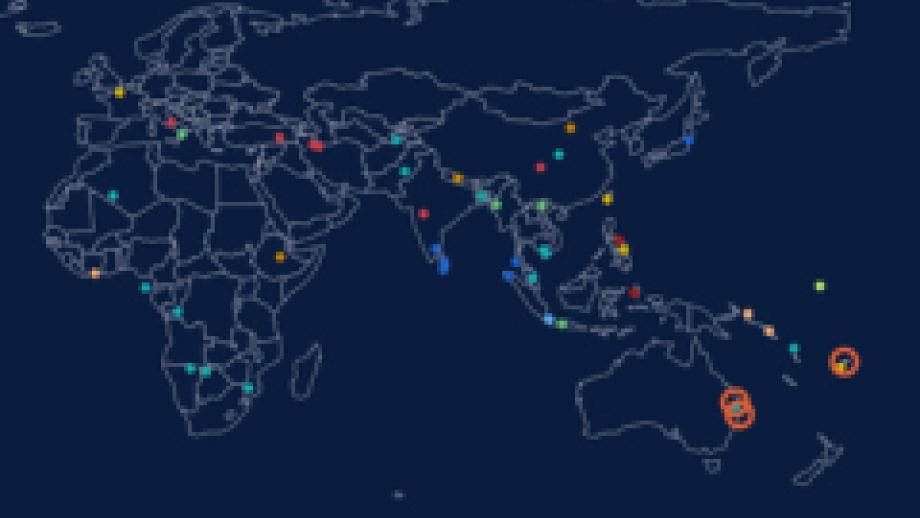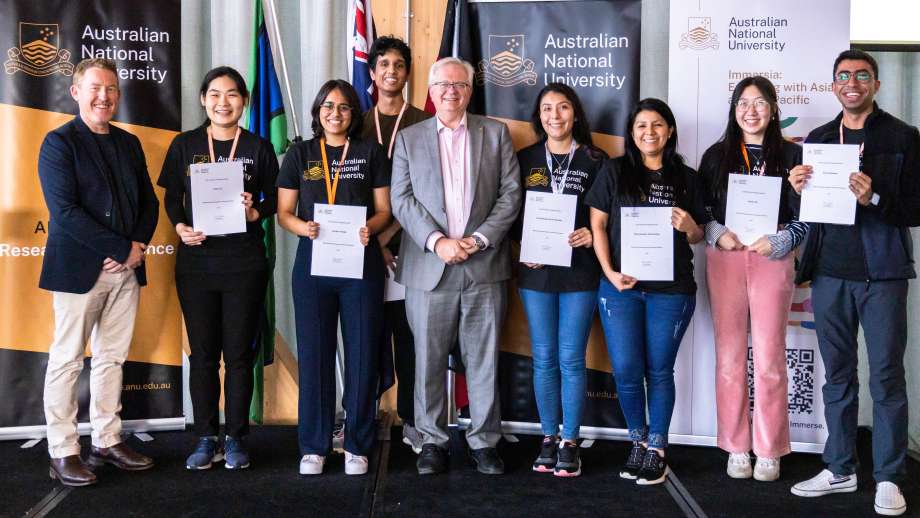Evolution of security cooperation network in the Asia-Pacific: China’s rise in joint military exercises
Presented by ANU College of Asia & the Pacific
How has the pattern of security cooperation changed in the Asia-Pacific along with the rise of China? Why have patterns of security cooperation changed over time?
Increasingly the Asia-Pacific countries carry out security cooperation activities with China, despite the absence of alliance ties. Yet there is a dearth of systematic data and analysis on China's security cooperation with the region in the international relations literature.
To fill in the gap, Kyuri constructs a unique dataset on joint military exercises in the Asia-Pacific from 1970 to 2019 and examine the variations in security cooperation patterns in the region using social network analysis and case studies.
The key finding is that the US allies and strategic partners in the region, who are 'least likely' to cooperate with China based on our conventional wisdom, have expanded joint exercises with China after the 2000s.
Comparison of security cooperation networks by decade using network analysis shows that the network has become more inclusive, densely connected, and less centralised over time and China has moved closer to the centre of the network from the periphery in recent years.
The finding implies that the Asia-Pacific countries today are much more connected to each other in the security realm than we think and formation of a Cold War-like bipolar coalition in the region is less likely.
Kyuri Park is a Ph.D. candidate in the Political Science and International Relations at the University of Southern California. Kyuri's research lies primarily in international security and cooperation, and East Asian foreign policy. She is particularly interested in examining interaction between a rising power and smaller countries in East Asia and drawing out its implications for regional order and stability.
In her dissertation, and eventual book project, Kyuri examines the variations in patterns of security cooperation in the Asia-Pacific along with the rise of China using network analysis and case studies. Her other projects examine South Korea's middle power foreign policy.
Kyuri completed a MA in Asian Studies at Georgetown University and a BA in International Relations from Ewha Womans University in Seoul, South Korea. Previously, she was a US-Asia Grand Strategy Predoctoral Fellow at the USC Korean Studies Institute (2019-2021) and a contributing author of 'Korea-Japan relations' for Comparative Connections, a triannual e-journal of bilateral relations published by the Pacific Forum.
This seminar is the seventh of the Women in Asia-Pacific Security Research Seminar Series 2020-21, jointly supported by the Graduate Research & Development Network for Asian Security (GRADNAS) and the ANU Gender Institute. This seminar series showcases the cutting-edge academic research of women in the fields of Asia-Pacific security broadly-defined, and serves as an international platform for strengthening academic exchange, feedback, and mentorship. For more information, contact the Series Convenor, Professor Evelyn Goh evelyn.goh@anu.edu.au.
Location
Speakers
- Kyuri Park
Contact
- Bell School Marketing Team



